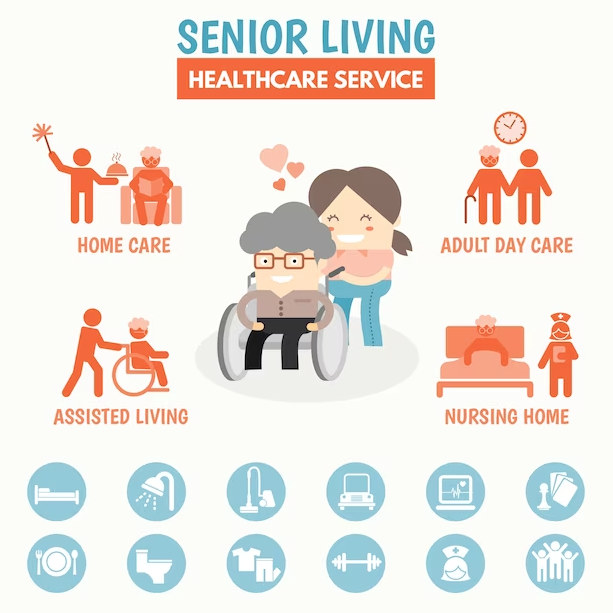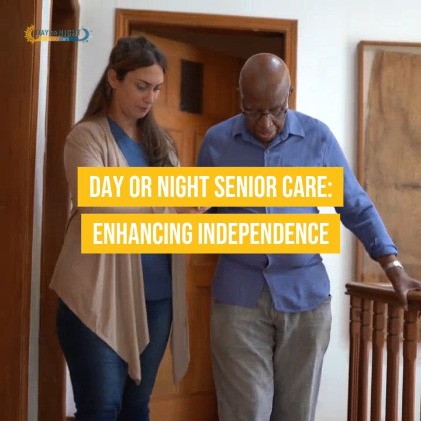Cost of In-Home Care vs. Nursing Home Care: Making the Financial Decision

When it comes to caring for our aging loved ones, one of the most important decisions we face is whether to provide care at home using a professional, reputable in-home care provider such as Day or Night Senior Care, or opt for a nursing home. This decision not only impacts the well-being of our loved ones but also has significant financial implications. In this article, we will explore the cost of in-home care versus nursing home care and provide insights to help you make an informed decision.
The Importance of Planning Ahead
Before delving into the cost comparison, it is crucial to emphasize the importance of planning ahead. Many families find themselves making hasty decisions in the midst of a medical crisis, which can lead to financial shocks. By researching and considering your options in advance, you can make a more informed decision and be better prepared for the financial implications.
Understanding the Cost of In-Home Care
In-home care refers to the assistance provided to seniors in the comfort of their own homes. This type of care allows seniors to age in place while receiving the necessary support. The cost of in-home care can vary depending on factors such as location, level of care needed, and the specific services required.
Generally, in-home care is more cost-effective compared to full-time nursing home care. The cost of in-home care in New England can range from $30 to $40 per hour, depending on the region. However, it is important to note that the cost can increase if additional services such as skilled nursing or specialized care are required.
Exploring the Cost of Nursing Home Care
Nursing homes provide 24/7 care and medical assistance to seniors who require a higher level of support. The cost of nursing home care can vary significantly based on factors such as location, amenities, and the level of care provided.
Nursing home care can easily exceed $200,000 per year. This wide range is influenced by factors such as the type of room (shared or private) and the quality of the facility. It is important to consider that nursing home care includes housing, meals, medical services, and other amenities, which contribute to the higher cost compared to in-home care.
Factors to Consider When Making a Decision
When deciding between in-home care and nursing home care, it is essential to take into account various factors that go beyond the cost alone. Here are some key considerations:
1. Level of Care Needed
The level of care needed by your loved one is a crucial factor in determining the most suitable option. If your loved one requires round-the-clock medical attention, a nursing home may be the best choice. However, if they only need assistance with daily activities and can remain in a familiar environment, in-home care may be a more cost-effective and preferable option.
2. Personal Preferences
Consider your loved one’s personal preferences and desires. Some individuals may feel more comfortable and happier aging in place, surrounded by familiar surroundings and cherished memories. In-home care allows them to maintain their independence and routine while receiving the necessary support.
3. Proximity to Family
The proximity of family members also plays a significant role in the decision-making process. If you have the ability to provide regular support and assistance to your loved one, in-home care may be a viable option. On the other hand, if you live far away or have other commitments that limit your availability, a nursing home may provide the necessary level of care and support.
4. Health Condition
Consider the specific health condition and needs of your loved one. Some medical conditions may require specialized care and equipment that can be better provided in a nursing home setting. In contrast, if their health condition allows for in-home care, it can provide a more personalized and comfortable experience.
5. Financial Considerations
While cost is a significant factor, it should not be the sole determinant of your decision. Take into account your loved one’s financial situation, insurance coverage, and available benefits. Explore options such as long-term care insurance, Medicare, or Medicaid to help offset the expenses associated with care.
The Benefits of In-Home Care
In addition to being more cost-effective, in-home care from Day of Night Senior Care offers several other benefits:
- Familiar Environment: Aging in place allows seniors to remain in a familiar environment surrounded by their cherished belongings and memories.
- Personalized Care: In-home care provides personalized attention and support tailored to the specific needs and preferences of your loved one.
- Independence and Dignity: Maintaining independence and dignity is essential for seniors. In-home care allows them to retain control over their daily routines and activities.
- Companionship: In-home caregivers not only provide necessary assistance but also offer companionship, reducing feelings of loneliness and isolation.
- Flexibility: In-home care offers flexibility in terms of scheduling, allowing you to customize the level of care and support based on your loved one’s needs.
Choosing the Right In-Home Care Provider
When opting for in-home care, it is crucial to choose a reputable and reliable care provider such as Day or Night Senior Care. Consider the following factors when selecting an in-home care provider:
- Accreditation and Licensing: Ensure that the provider is licensed and accredited, adhering to industry standards and regulations.
- Experience and Expertise: Look for a provider with extensive experience in providing in-home care and expertise in dealing with specific health conditions, if applicable.
- Caregiver Training and Qualifications: Inquire about the training and qualifications of the caregivers. They should have the necessary skills and knowledge to provide the required level of care.
- Client Reviews and Testimonials: Read client reviews and testimonials to get a sense of the quality of care provided by the agency.
- Compatibility: Consider the compatibility between the caregiver and your loved one. It is essential to find a caregiver who can establish a positive and trusting relationship with your loved one.
When deciding between in-home care and nursing home care, it is essential to consider the unique needs and preferences of your loved one, along with the associated costs. While nursing homes provide comprehensive care, in-home care at Day or Night Senior Care offers a more personalized and cost-effective option for those who can age in place comfortably. By planning ahead and exploring the available options, you can make an informed decision that ensures the well-being and happiness of your aging loved one.











